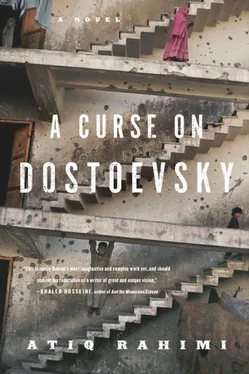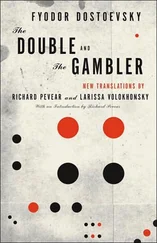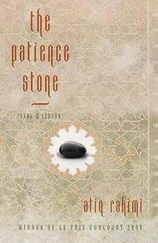But why, Rassoul? What do you know about him? He hasn’t said anything. Leave the guy alone. He is happy. He is proud. He isn’t suffering as you are. Thank God that you can’t speak!
Drink your tea, eat your bread, and get out of here!
As Rassoul stands up, one of the armed men addresses Jano. “Excuse me, brother, aren’t you Jano?”
“Yes.”
The man walks up to him, smiling. “Don’t you recognize me? Momène, from Commandant Nawroz’s troop?”
Jano drops his glass of tea, startled. “Of course! How could I forget? You’ve changed a bit. Put on weight, definitely! That must be five or six years ago… or more?”
“Six years.”
They stand up, throw themselves into each other’s arms, embrace warmly, and sit back down together. The perfect chance for Rassoul to escape. He gets to his feet to shake Jano’s hand and take his leave. But the soldier won’t have it. He invites him to drink another tea with these old friends.
“Sit down!” He turns toward the other men. “Last night we beat this brother during a patrol, and today we’re drinking tea together! Who says we don’t want peace!” He snorts with laughter, tugging at Rassoul to sit down.
And Rassoul complies.
They order more tea. And smoke cigarettes. Momène starts telling his friends about “Our unforgettable operation! Six years ago…”
“Yes, six years ago,” confirms Jano nostalgically. He turns to Rassoul. “It was summertime. A summer evening. We were on our way to attack a Soviet location. We’d been told that Commandant Nawroz would be in charge of this operation. Commandant Nawroz and our Commandant Parwaiz didn’t get on at all, but they decided to attack the Russians together anyway. We would take the prisoners, and they would get the guns…” Interrupted by a laugh from Momène, he takes a gulp of tea then continues. “Anyway, as soon as night fell we attacked!” This time he’s interrupted by his own laughter, and it is Momène who takes up the story.
“In our regiment there was a mujahideen by the name of Shirdel. A brave man and a good Muslim, but with a soft spot for the boys! So we nicknamed him Kirdel— lover of cock.” At this, everybody fell about laughing. “When our troop silently and carefully attacked the weapons depot, our bradar Shirdel came across a young Russian soldier taking a shit!” Their loud laughter silences everyone in the tearoom. They start listening, too. Jano is laughing so hard there are tears streaming down his face. Momène continues: “Imagine our Shirdel in such a situation! His heart was beating a hundred miles an hour; he didn’t know what to do; he was trembling with fear that a mujahideen would shoot this dreamy creature with the smooth white buttocks! Anyway, he captured him and, once the operation had been carried out successfully, took him to Commandant Nawroz, who ordered that he be given to Commandant Parwaiz. But who was he telling! Shirdel immediately handcuffed himself to the pretty boy and swallowed the key!”
They all roar with laughter. Rassoul does too, but deep inside. When the laughter quiets down, Jano continues: “Commandant Parwaiz took them both. He talked to Shirdel at great length, but he wouldn’t listen. He had changed. It was all over for him—jihad, prayer… They walked around together from morning till night, hand in hand. Shirdel sang for him, taught him our language… And then one night, they disappeared.” He turns to Momène. “You never saw them again?”
“No, never,” replies Momène, wiping away his tears. “What a time!”
“Exactly, what a time! We may not have seen eye to eye, but against the Russians we were united!”
“We were!”
“And now look, these days we’re fighting each other. Why?”
“Ask Commandant Nawroz!”
“And you, ask your Commandant Parwaiz!”
The laughter stops.
A silent hatred invades the chai-khana .
Rassoul stands up, gestures quietly at Jano—who waves goodbye—and makes a speedy exit.
He has barely reached the end of the road when he is startled by two gunshots, fired not far behind.
In the chai-khana?
Perhaps.
He stops, turns around.
Let them kill each other!
He continues on his way to Sophia’s house.
HE KNOCKS at the gate and waits. The fearful voice of Sophia’s mother: “Who is it?” Hearing no response, she repeats her question. “It’s Rassoul!” cries Sophia’s brother, Dawoud, who is perched on the roof of the house.
The mother opens the gate, sees Rassoul’s cut face, and shivers. “What happened to you?” Nothing, I just cut myself shaving, that’s all, he would have liked to reply, not bothering to elaborate on the blade of destiny. But he just mimes what happened and comes inside, as the mother complains: “You were supposed to come yesterday evening. I didn’t get a wink of sleep.” He nods as if to say that he knows. Too bad if he can’t apologize.
The mother peers into the empty lane for someone else and, stunned to see Rassoul alone, demands: “Where is Sophia?”—Didn’t she come home? Rassoul asks with his eyes. “Isn’t she with you?” No. Rassoul’s shaking head makes her still more anxious. She glances into the lane, then turns back toward him, leaving the gate open in the hope her daughter will suddenly appear. “She wanted you to go with her to Nana Alia’s, to do her books…” To Nana Alia’s! He leans against the wall to stop himself staggering. “She told me that you’d asked her to break ties with the old woman. Then two days ago, her daughter Nazigol came here to tell me that if Sophia no longer wanted to work for her, she would first have to pay the outstanding rent. We waited for you all yesterday, to discuss it. When you didn’t come, she went, but…” She too went there yesterday? “…Nana Alia wasn’t there.” She wasn’t there? What about her body? “Sophia wanted to go back today. I asked her to take you with her.” Take me? “Weren’t you at home?”
I was. So why didn’t she say anything? Look at the state you’re in, Rassoul. No one would dare ask you for anything these days. Your unexplained and incomprehensible silence gives the impression that everyone upsets you.
“I worry so much for Sophia, Rassoul. Take care of her. Don’t leave us like this, all alone and without news of you. In these times, young girls are disappearing. The warlords raid the city to take them for their wives.” Her voice is broken by a sob. But Rassoul is no longer listening. His legs wobble. It seems as if the floor is giving way, collapsing beneath his feet. He leans on the wall and lets himself slide to the ground. The mother continues: “And that blasted Nana Alia is worse than the warlords. I’m afraid she will hurt Sophia.” She sits down facing Rassoul. “My late husband placed us in your hands; aside from you we have no one. And you…”
But he is walled in by silence, gripped by the continuing mystery surrounding the murder of blasted Nana Alia, lost in his suspicions about the woman in the sky-blue chador who, in his fantasies, can only be Sophia. He must find her!
He stands up and leaves. On the way,
He catches no eye,
Hears no voice,
Smells no aroma,
Feels no pain.
He runs.
Runs as if his ankle no longer hurt.
But his foot has not forgotten. It twists, and stops him in his tracks. Stops him not far from Nana Alia’s house, on the corner of her street, where the same black dog is still lying in the shadow of the wall. This time, the idle dog is more alert and stands up, rushes at him, chases him away. Rassoul cannot enter that house as if nothing had happened there.
Nothing did happen. Look! Listen! This silence, this stillness gives no indication of mourning.
Читать дальше












